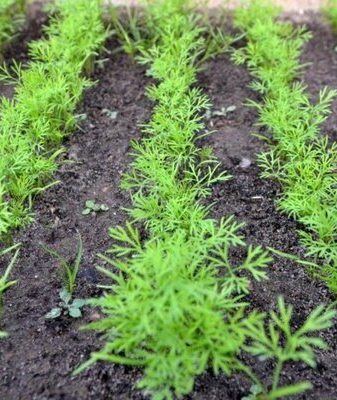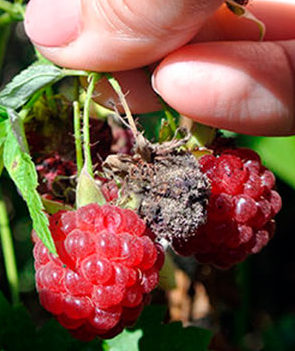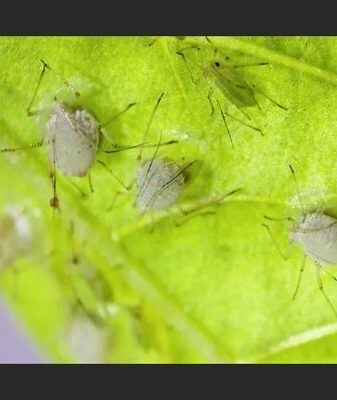Aphids on dill: how to get rid of
Content:
Aphids are a dangerous and prolific pest. It has a large distribution area. And it affects a variety of plants. Several varieties of this insect at once prefer to parasitize on dill. During the season, aphids on dill can produce, as a rule, up to 18 generations of new individuals. Which exposes the planting of dill to a real invasion.
As a rule, ants are constant companions of aphids. They eat the sweet liquid secreted by aphids. It is its appearance on plants that indicates the danger that threatens them.
Also, a sure sign of the defeat of the planting of aphids is the shells thrown off to it in the form of scales resembling ash particles.
As a rule, aphids on dill prefer to settle in young plantings. Most often chooses the lower part of the foliage and umbrellas. Because in these places the upper layers of plant tissue have the lowest density and are easily pierced.
Thus, aphids on dill feed on juice. That in the end can lead to his death. The plant affected by aphids is characterized by slow growth. As well as deformation of stems and leaves.
In addition to the obvious harm, aphids on dill, as a rule, also carry the threat of fungal infection. The appearance of which is evidenced by soot-like stains with an oily surface.
Unlike other garden crops, greens are extremely poorly tolerated by chemical treatment. They can also harm human health. Therefore, it is much more effective not to fight the aphids that have already appeared on the dill. And to prevent its invasion by preventive methods. Below we will consider how you can prevent the defeat of aphids in dill beds.
Aphids on dill: prevention
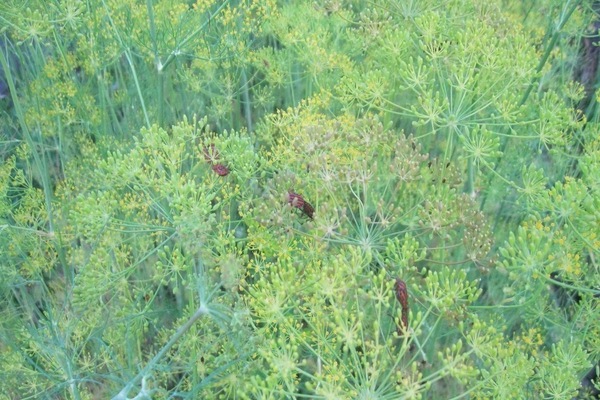
Aphids on dill: photo
First of all, you need to take care of the correct placement of the dill beds. First, the area set aside for its cultivation must be well ventilated. And also be sufficiently lit.
Planting too densely will lead to a lack of nutrition and moisture in the soil. Weak plants become easy prey for pests. During the winter, aphid larvae survive in infested garden plants and weeds. And with the arrival of spring, they begin to multiply rapidly. Capture young shoots. Therefore, it is vital to remove weeds from the beds in time. As well as plant residues, dry stems and leaves.
Regular inspection of dill bushes, especially the back of the leaves, will allow you to detect the appearance of pests in time. And prevent their spread early.
We follow the rules of sowing dill to get rid of aphids
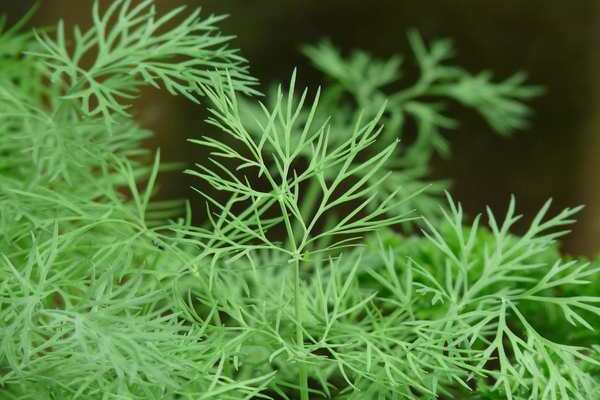
Compliance with crop rotation rules will also help reduce the risk of aphid infestation. So, it is not recommended to plant dill after carrots, parsley or celery. And also other types of greenery affected by aphids.
Neighborhood with such cultures is also undesirable. But the alternation of plantings of dill with beds of onions and garlic, on the contrary, will protect them from infection. Placement of herbs in the neighborhood will also be successful. For example, fennel, basil, or mint.
Many decorative crops have a phintocidal effect. Therefore, they are able to drive away aphids. For example, marigolds or chamomile. Legumes adjacent to dill and some types of flowers (mallow, begonia) can distract aphids from greenery.
It is extremely dangerous to plant dill next to viburnum, linden or bird cherry. Because these plants are extremely attractive to aphids. And they can become the starting point of the invasion of pests.
Another method of protecting dill from aphids is to create a bed cover made of nonwoven fabric. He will not allow pests to get on the plants. And its light weight won't hurt the stems.
Aphids on dill: how to get rid of?
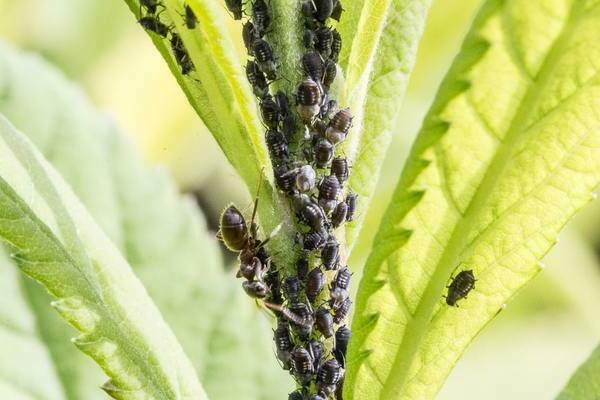
Aphids on dill: photo
If aphid infestation of dill does occur, it can be washed off with a powerful water jet. And the most affected parts of the plants must be removed manually and destroyed.
The spread of aphids on dill is directly related to the presence in the garden of its natural companions - ants. These generally beneficial insects do a disservice to gardeners. Because they "graze" the aphids, feeding on the sweet traces secreted by it.
Traditional methods are traditionally used to combat ants. And in especially difficult situations - insecticides. For a start, you can try to get rid of insects by spilling boiling water over their holes. And also sprinkle them with millet or semolina.
Traps are considered very effective. Especially containing a mixture of a substance toxic to ants (such as boric acid) with a sweet filler like honey. You can also add jam, jam, or sugar syrup.
Instead of a pharmaceutical preparation, ordinary baker's yeast can be used. They are also harmful to ants.
The resulting mixture is spread on small boards. Or on pieces of cardboard. And place them in places of the greatest concentration of ants. It is best if the poisonous substances, together with the working ants, penetrate into the nest. And in this way they will poison the "queen". Then there is a chance that the ants will leave the site.
If traditional methods do not help, it remains to use chemicals. You should know that they can be used only at a distance from dill crops.
How to spray dill from aphids?
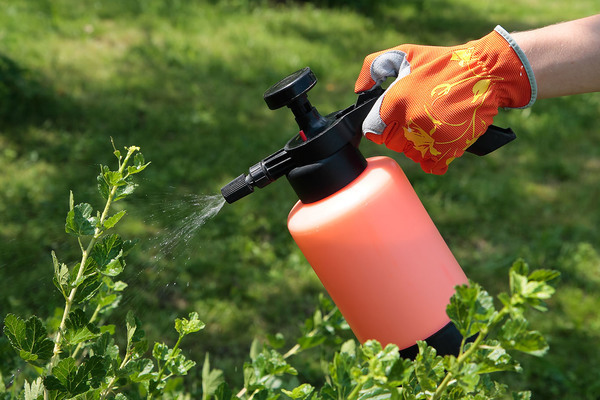
To date, a fairly large number of drugs are known that can act on aphids. The obvious disadvantage of such funds is their toxicity. Because, by killing pests, chemicals can penetrate the tissues of the plant itself. And thereby harm people who eat dill treated with insecticides. Therefore, the question of an environmentally friendly and safe way for humans to save dill from aphids does not lose its relevance.
If you choose ready-made preparations for the destruction of aphids, give preference to products on a natural basis (biologics). They kill various pests. At the same time, they do not harm a person. As well as other mammals and birds.
Thus, Fitoverm is highly effective. After processing it, the aphid on dill dies within 2-3 days. Its effect lasts for a week. And in the absence of precipitation, it will last about 3 weeks.
This drug is not the only eco-friendly product that effectively deals with aphids. It can be replaced by Enterobacterin. It has a cumulative effect. And it works even in summer heat conditions up to 30 degrees. Biotlin is also a good choice.
Aphids on dill: how else to treat the plant
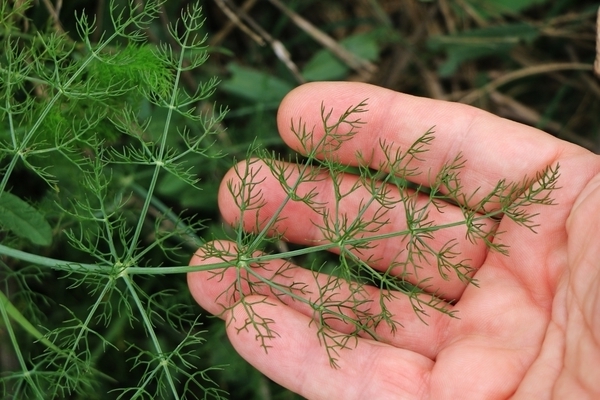
Superphosphate and potassium foliar dressings, as a rule, help to increase the immunity of dill. And his general health. What can prevent aphid infestation.
The combination of these substances in the ratio of 2 parts of superphosphate to 1 part of potassium chloride must be dissolved in 10 liters of water. Enough 30 g of the mixture. Then use to spray dill beds.
Irrigation must be thorough. From all sides of the bushes. Including, it is necessary to moisten the root part of the plants. Processing is carried out twice at weekly intervals.
After the treatment of dill with insecticides, its use in food is possible only after 5-6 days. Better in a week. Meanwhile, many gardeners tend to be wary of using chemicals. And they give preference to folk methods.
Folk methods of getting rid of aphids on dill
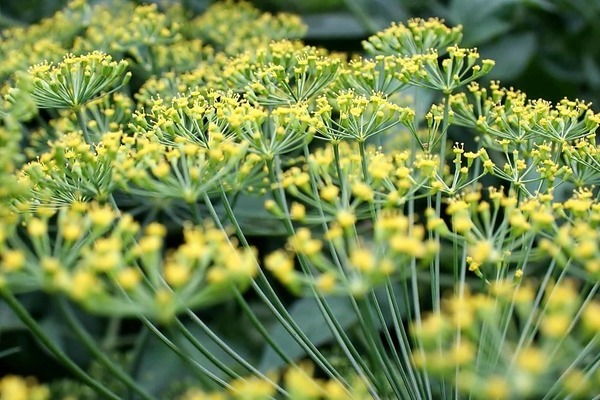
Spraying dill with ordinary soapy water will be fatal for aphids.It is very easy to make it at home. To do this, take 100 g of any liquid detergent. And dilute it in 10 liters of hot water.
In the absence of liquid soap, ordinary household soap will come in handy. It is known for its disinfectant properties. And it is also absolutely safe for humans. You need to grate about 300 g of solid soap. Then dissolve it in water.
The effectiveness of the solution will increase if you add wood ash to it. Approximately 150-200 g. The dill beds are sprayed with the cooled solution. And before eating greens for food, it will be enough just to rinse them with water.
Many plants growing in the garden can become the basis for infusions that repel aphids. Which will be a worthy replacement for chemicals.
These include: potato or tomato tops, onion skins and chopped onions. And also garlic, chamomile, hot peppers in pods, horse sorrel, yarrow, celandine, marigolds.
Also, infusion on shag or mustard powder is highly effective from aphids on dill. The combination of these products with spraying with soapy water and adherence to agrotechnical recommendations will make them even more effective and help get rid of aphids on dill forever,


